Galápagos Wildlife

Vega
Hugh and Annie
Tue 28 Mar 2017 23:53
| We have been on San Cristobal for just over a week and discovered that you can walk, cycle, taxi and generally get around without having to join large organised groups - considered to be one of the downsides of visiting these islands. It may be different on the other islands but here we have had our own close encounters with sea lions, giant tortoises, blue and red footed boobies, marine iguanas, eagle rays, Galápagos sharks, turtles and most excitingly, Darwin’s finches. We did require an organised scuba trip to see the sharks but have seen large eagle rays and turtles and swam with sealions just by snorkelling. We scuba dived with Ian and Steph from Nautilus but Annie and I surfaced first after I had not felt comfortable in the poor visibility and strong current and as a result missed a close encounter with three hammerhead sharks - one day she may forgive me. Until we came here our experience of wildlife has been that it is difficult to see and generally tries to hide from human encounter. In the UK you usually only see things by chance or have to go to great lengths of concealment and patience to be rewarded. Here it is very different and the wildlife will be found where you expect it to be. Once encountered it will not run away and sometimes will come to you to check you over. It is not at all what we are used to and in a way it is quite humbling. We are encountering creatures in their environment (or sometimes they have moved in to ours) and they are not expecting to be captured, shot or preyed upon. This gives a sense of sharing that we have never experienced before and provides some insight into the indigenous people’s philosophy we found in Colombia. There is a temptation to think that we humans are more highly evolved than all other animals. We aren’t. All animals have evolved from the same ancestor over the same period of time to be as perfectly adapted to their environment as they need to be. We have interfered in the process with domesticated animals, hunting and efforts to eradicate “pests" and disease causers or carriers but otherwise animals are as adapted as they need to be. I was reminded of this when scuba diving. As I was struggling to see anything, move anywhere and wanting to breath air from the atmosphere I couldn’t have felt less adapted to my environment. Most of the creatures down there don’t need light at all to know where they are and what is going on around them. A shark can detect electrical impulses from a beating heart, astonishingly low concentrations of chemicals in the water and the Earth’s magnetic fields. A seal or sealion can follow the movement of a fish by detecting the disturbances the fish makes in the water when swimming and does this with its whiskers. And we think we are highly evolved? Other animals have complex social structures and interactions but only humans seem to have such a highly developed sense of self awareness. We have a strong urge to name and categorise things and that may have led to the development of complex language. We are only too aware of our own mortality and need to feel there is some meaning or purpose in life. There is no reason why there should be more meaning for us than any other creature. Arguably there is more meaning for plants as they gave rise to the Earth's oxygenated atmosphere and hence to life as we know it. However, in our search for meaning we invent gods and make up stories about why we are here and persuade ourselves that the earth and all its other occupants were put here just for our benefit - to plunder, exploit, eat, use or exterminate at will. Some think this about fellow human beings and it is at the heart of rampant free market economics (ok, maybe a digression too far). When meeting these animals it is important not to anthropomorphise. A sealion basking on a park bench looks very cute but won’t move to let you sit and if you try and stroke it and say hello you are likely to get a nasty bite for your troubles. When we were paddling along a beach yesterday two sealion pups were playing boisterously a few yards away. One kept breaking away and rushing up to us, turning and twisting out of the water. It would repeat this a few times and then come up and stop in front of us and look. We would give it a round of applause and then it would repeat the game before coming back for more applause. Now of course we liked to imagine it was playing with us but there could be other explanations for the behaviour. Larger adults swam with us as we snorkelled and would brush past very close and it looked playful. But were they warding us away, imagining we were other sealions, or doing just what they do instinctively? If a dog puppy wants to play then why not a sealion? The point is that, for whatever reason, they were interacting with us and lots of the animals here do that in their own way. It really does make us think twice about the way we treat our planet (and ourselves). Darwin captured and killed his specimens for future reference but I like to think he would now be appalled at this given our contemporary perspective. I am not turning vegetarian, buddhist or hindu but a few days in the Galápagos is enough to make one realise just how arrogantly and mindlessly we treat our world and our fellow inhabitants. 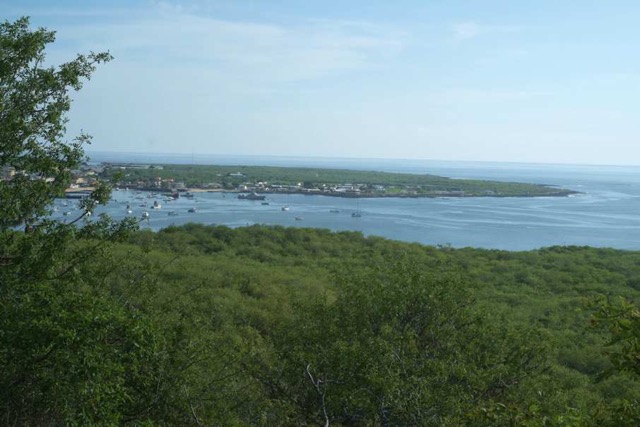 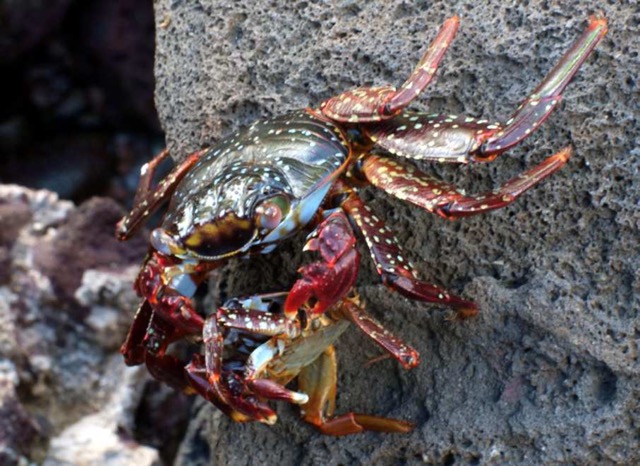 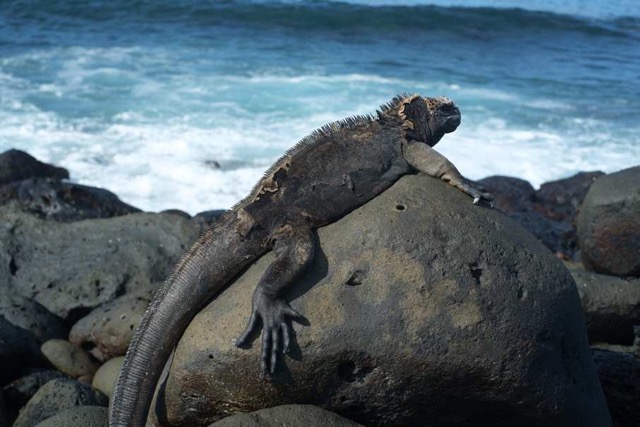 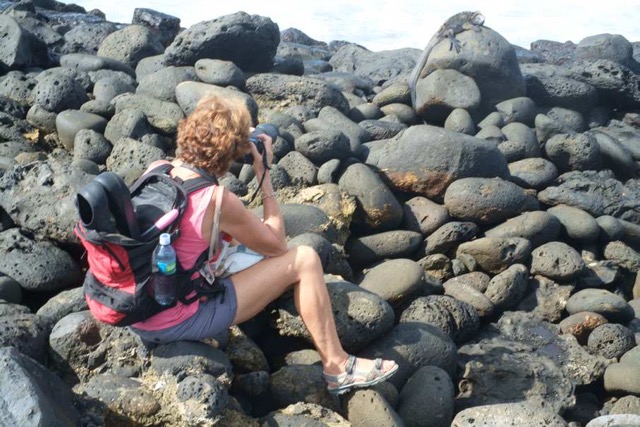  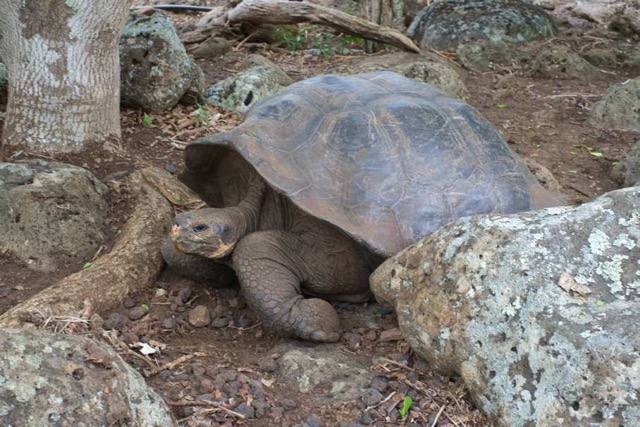 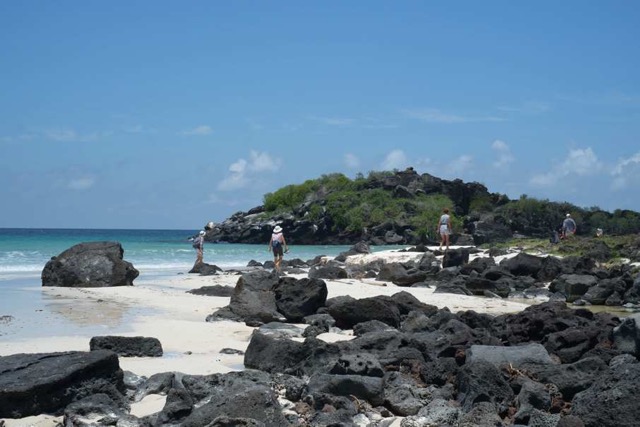 |